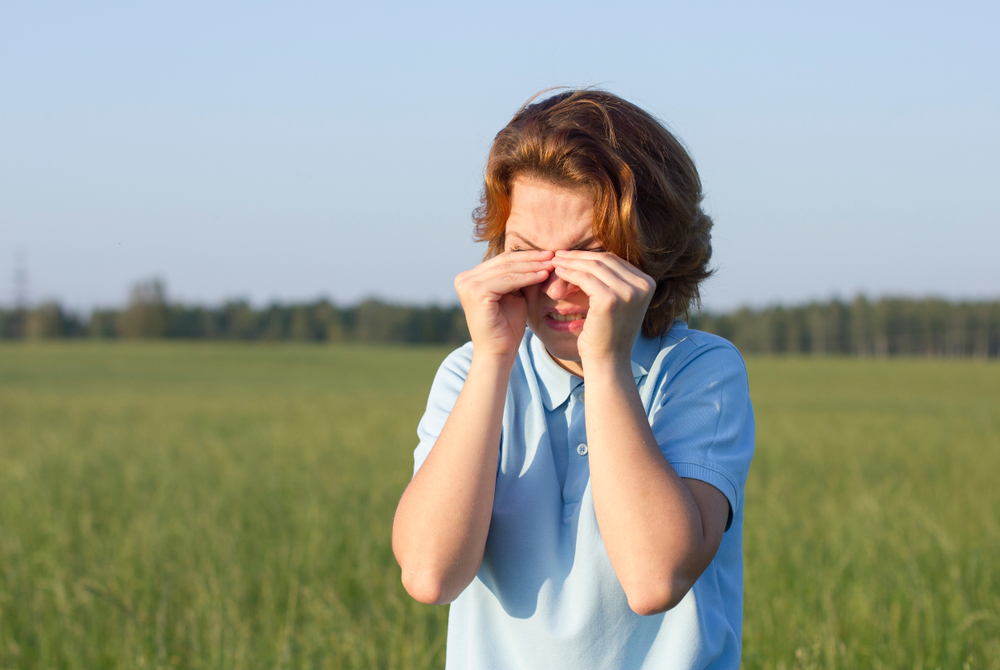
Eye allergies, also called allergic conjunctivitis, happen when your eyes come into contact with allergens such as pollen, dust, mold spores, or pet dander. Your immune system treats these harmless particles as threats and releases histamines. The result is red, watery, itchy, and swollen eyes that can make even simple tasks uncomfortable.
Why Summer Makes Eye Allergies Worse
Many people find that eye allergies peak in the summer months. Here’s why:
- High pollen counts: Grasses, ragweed, and other plants release high levels of pollen, especially on hot, dry, and windy days.
- More outdoor time: Summer invites camping, hiking, gardening, and backyard barbecues - all of which increase exposure to allergens.
- Chlorine and pool irritants: Swimming pools may trigger irritation and magnify allergy symptoms.
- Air conditioning: AC units recycle indoor air, which can trap dust and allergens. They can also dry out your eyes, making them more sensitive.
- Sun exposure: Bright sunlight causes people to rub their eyes more often, which worsens allergic reactions and spreads allergens across the eye surface.
All these factors combine to make summer one of the toughest seasons for people who deal with allergies.
Symptoms of Summer Eye Allergies
If you’re wondering whether your summer discomfort is due to allergies or another eye issue, here are symptoms that commonly point to allergic conjunctivitis:
- Red, bloodshot eyes
- Watery or teary eyes
- Persistent itching or burning
- Puffy eyelids, especially in the morning
- A gritty or “sand-like” feeling in the eyes
- Increased light sensitivity
If these symptoms worsen outdoors, improve when you’re indoors, or occur at the same time as seasonal sneezing and nasal congestion, allergies are the likely culprit.
What You Can Do to Find Relief
You don’t have to suffer through the summer months. These simple changes can help reduce allergy-related irritation:
- Wash bedding often: Pollen and dust can cling to fabrics and make nighttime symptoms worse.
- Use cold compresses: Applying a cool, damp cloth over your closed eyes can help reduce itching and swelling.
- Protect your eyes: Wraparound sunglasses or wide-brimmed hats block pollen, dust, and UV rays.
- Moisturize your eyes: Artificial tears can rinse away allergens and soothe dryness.
When to See Your Optometrist
While mild allergy symptoms can often be managed at home, there are times when it’s important to see an eye doctor. If your symptoms persist despite using over-the-counter drops or medications, it may be a sign that you need stronger treatment. Blurry or hazy vision, severe pain, swelling, or heightened light sensitivity are also indicators that something more serious may be going on.
In some cases, it can be difficult to tell whether your discomfort is due to allergies or another eye condition. Your doctor can determine the true cause of your symptoms and recommend a treatment plan tailored to your needs. Depending on the findings, this may include prescription eye drops, antihistamines, or specialized care to address underlying conditions.
Don’t Let Allergies Ruin Your Summer
Summer eye allergies can be frustrating, but with the right knowledge and care, you don’t have to let them hold you back. By taking preventive steps, using proper eye care products, and knowing when to seek professional help, you can keep your eyes clear, comfortable, and ready to enjoy everything summer has to offer.
Struggling with itchy, watery eyes this summer? Schedule a consultation with Monroe Vision Clinic to find lasting relief. Contact our office in Monroe or Snohomish, Washington, by calling (360) 794-2020 to book an appointment today.








